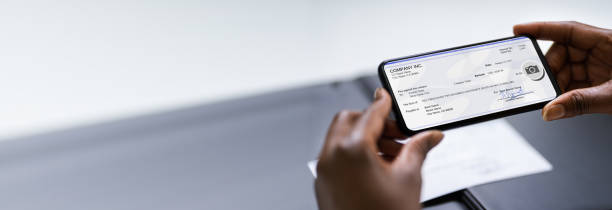Cheque cashing can be a convenient way to get access to cash. When it comes to cashing cheques, there are a few things you need to be aware of to avoid making costly mistakes.

Here are the 11 biggest cheque cashing mistakes and how to avoid them:
1. Not knowing the bank’s cheque-cashing policies.
Each bank has its guidelines on cashing cheques, so be sure to learn about them before you go. Some banks may demand that you have a banking account with them to cash a check, while others may charge a fee for this service.
2. Cashing a post-dated cheque before the date specified on it.
Post-dating a cheque simply means writing the date that you want the cheque to be cashed at a later time. If you try to cash a post-dated cheque before the date specified, the bank may not honour it and you could be charged with fraud.
3. Not Endorsing the back of your cheque.
To cash a cheque, you must first sign the back of it. This is so that the bank may cash your cheque and assume you are the true owner. Make sure you sign it exactly as your name appears on the front of the cheque.
4. Trying to cash a stale-dated cheque.
A stale-dated cheque is more than six months old from the date it was issued. Most banks will not honour these types of cheques, so be sure to check the date before you try to cash it.
5. Cashing a cheque that has been altered.
If the amount on the cheque differs from that shown on the front, do not attempt to cash it. This is because the cheque may have been falsified and should be avoided.
6. Not having enough funds in your account to cover the cheque.
Before attempting to cash a cheque, make sure you have adequate funds in your account. The bank may honour the cheque if you don’t, however, you will be charged a fee for doing so.
7. Cashing a cheque made out to someone else.
If the cheque is made out to someone else, you cannot cash it. The only person who can cash a cheque made out to someone else is the person it was made out to.
8. Cashing a cheque that is not yours.
This one is pretty self-explanatory – if you’re not the rightful owner of the cheque, do not try to cash it!
9. Not having your ID on you when cashing a cheque.
Most banks will require some form of identification from you before they will cash your cheque, so be sure to bring your ID with you when you go.
You need to have a valid form of photo identification to cash a cheque. This is for security purposes and to make sure that you are the rightful owner of the cheque.
10. Not keeping track of your bank account balance.
This is important regardless of whether or not you’re cashing a cheque. It’s always a good idea to keep track of your bank account balance so that you know how much money you have available to spend.
11. Depositing the cheque into your account directly.
You can’t just deposit a cheque into your account and expect it to clear. You need to take it to a cheque-cashing service to get the cash.
By following these simple tips, you can avoid making costly mistakes when cashing cheques. Be sure to familiarize yourself with your bank’s policies before attempting to cash a cheque, and always endorse it before doing so. And most importantly, keep track of your bank account balance so that you don’t find yourself in a difficult situation down the road.
If you are from Cranbourne West, Victoria and you might want to instantly cash your check, just visit we cash cheques 24 7, they would be of great help.
